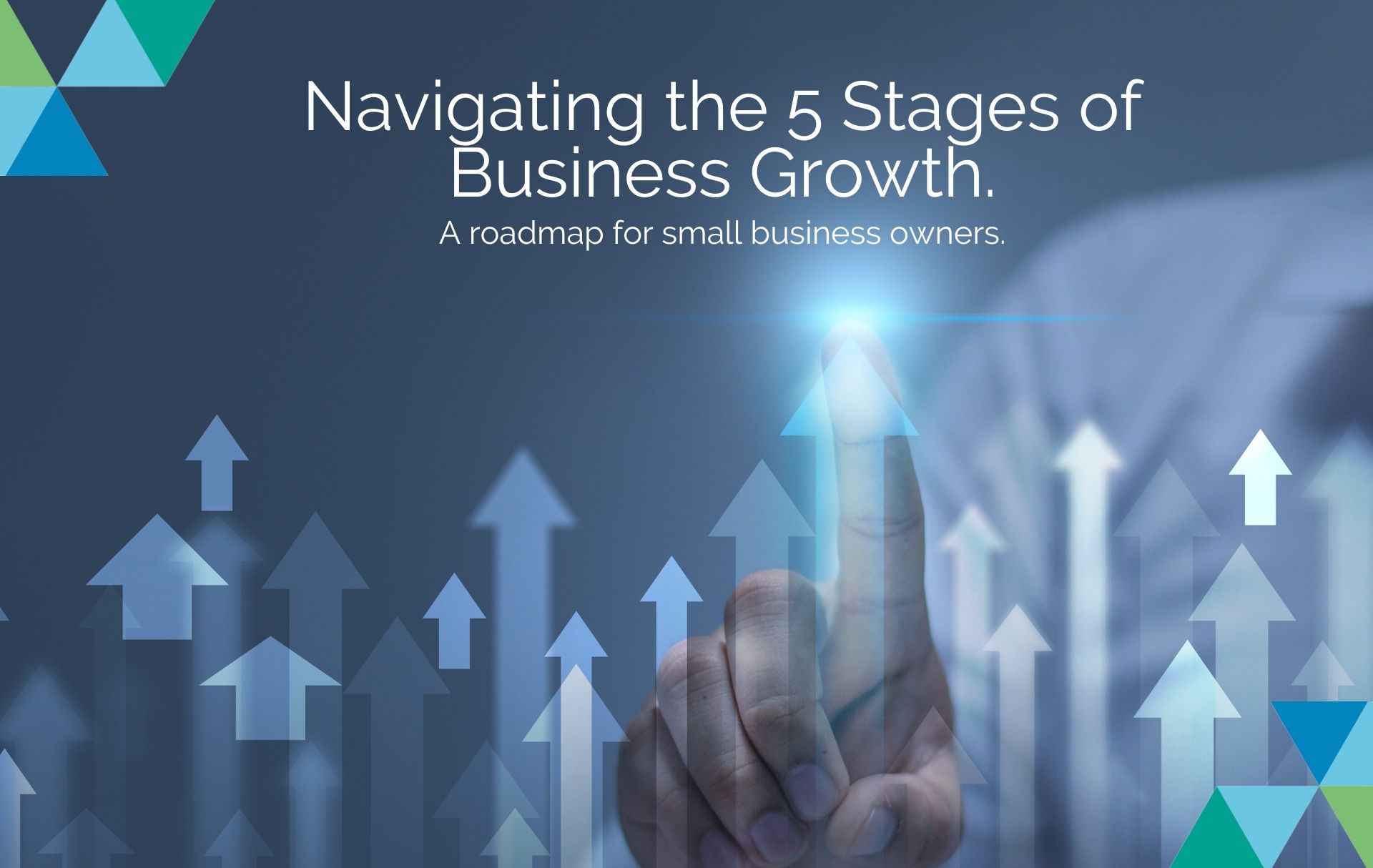Navigating the 5 Stages of Business Growth: A Roadmap for Small Business Owners

Starting a small business is like planting a seed and watching it grow. The journey is filled with ups, downs, and countless surprises along the way. If you've ever felt like your business is evolving at a pace you can't quite grasp, you're not alone. Understanding the stages of business growth can be your compass on this exciting journey.
In a classic Harvard Business Review article by Neil C. Churchill and Virginia L. Lewis, the authors break down the growth journey into five stages. The original article is quite lengthy and we know that most small business owners are a bit short on time, so we have included a summary of the five stages, a key tip for each stage and our key takeaways below.
Stage 1: Existence
This is where it all begins - the birth of your business. You're focused on survival. Every day feels like a battle to attract customers, make sales, and keep the lights on. Resources are tight, and you're wearing many hats. It's a stage of high uncertainty, where the main question is, "Can we make it?"
Tip: Stay lean and focus on the essentials. It's about keeping your head above water and establishing a customer base.
Stage 2: Survival
In this stage, you're still focused on survival, but it's a bit less precarious. You're generating consistent revenue, and your customer base is growing. It's a stage where you need to fine-tune your operations, manage cash flow wisely, and ensure you're not just surviving but thriving.
Tip: Keep a close eye on your finances, and invest in what's working to ensure steady growth.
Stage 3: Success
Success is sweet, but it comes with its own set of challenges. You're experiencing consistent profitability, and your customer base is loyal. At this point, you can start thinking about expansion. It's crucial to maintain what's made you successful while exploring new opportunities carefully.
Tip: Don't lose sight of what got you here. Continuously innovate and adapt to changing market dynamics.
Stage 4: Take off
This is the stage where your business experiences rapid growth. You've hit your stride, and demand for your products or services is soaring. To keep up, you'll need to scale your operations, hire more staff, and expand your market presence. It's an exciting but often overwhelming phase.
Tip: Invest in efficient systems and processes to handle the increased workload. Keep a sharp eye on your finances as you grow.
Stage 5: Resource Maturity
In this final stage, your business has reached a level of maturity. Growth may slow down, but you've achieved stability and a strong market position. You're now looking at optimising your operations and possibly diversifying your product or service offerings.
Tip: Focus on innovation and efficiency to stay competitive. Explore new markets or product lines to sustain growth.
Of course, not all businesses follow this growth path precisely. Some may skip stages, while others may linger in one for an extended period. The key is to recognise where your business currently stands and make strategic decisions accordingly.
Here are a few essential takeaways for small business owners:
1. Be Adaptable
The business landscape is ever-changing. Be ready to pivot and adapt as your business grows.
2. Financial Management
Your financial health is critical at every stage. Keep a tight grip on your finances, especially during the earlier phases.
3. Customer Focus
Customer satisfaction is your North Star. Happy customers are more likely to stick with you through all stages of growth.
4. Innovation
Don't get complacent. Keep looking for ways to innovate and improve your products or services.
5. Seek Guidance
Don't hesitate to seek advice from mentors or professionals who've been through the stages of growth. Their insights can be invaluable.
The journey of business growth is an exhilarating one. By understanding these five stages, you can navigate the road ahead with confidence. Remember that success is not just about reaching the final stage but about maintaining and continuously improving your business at each step of the way. Stay focused, stay agile, and your business can flourish, no matter where you are on this growth path.
If you would like to explore the growth opportunities for your business, we have a team of strategic accountants that can combine their specialist knowledge and expertise in audit, compliance and commercial finance to provide you with effective solutions for growth. To find out more about how we can help you, please contact one of our team at admin@wrightsca.com.au.
Important notice: This article provides information rather than financial advice. The content of this article, including any information contained in it, has been prepared without taking into account your objectives, financial situation or needs. You should consider the appropriateness of the information, taking these matters into account, before you act on any information.










